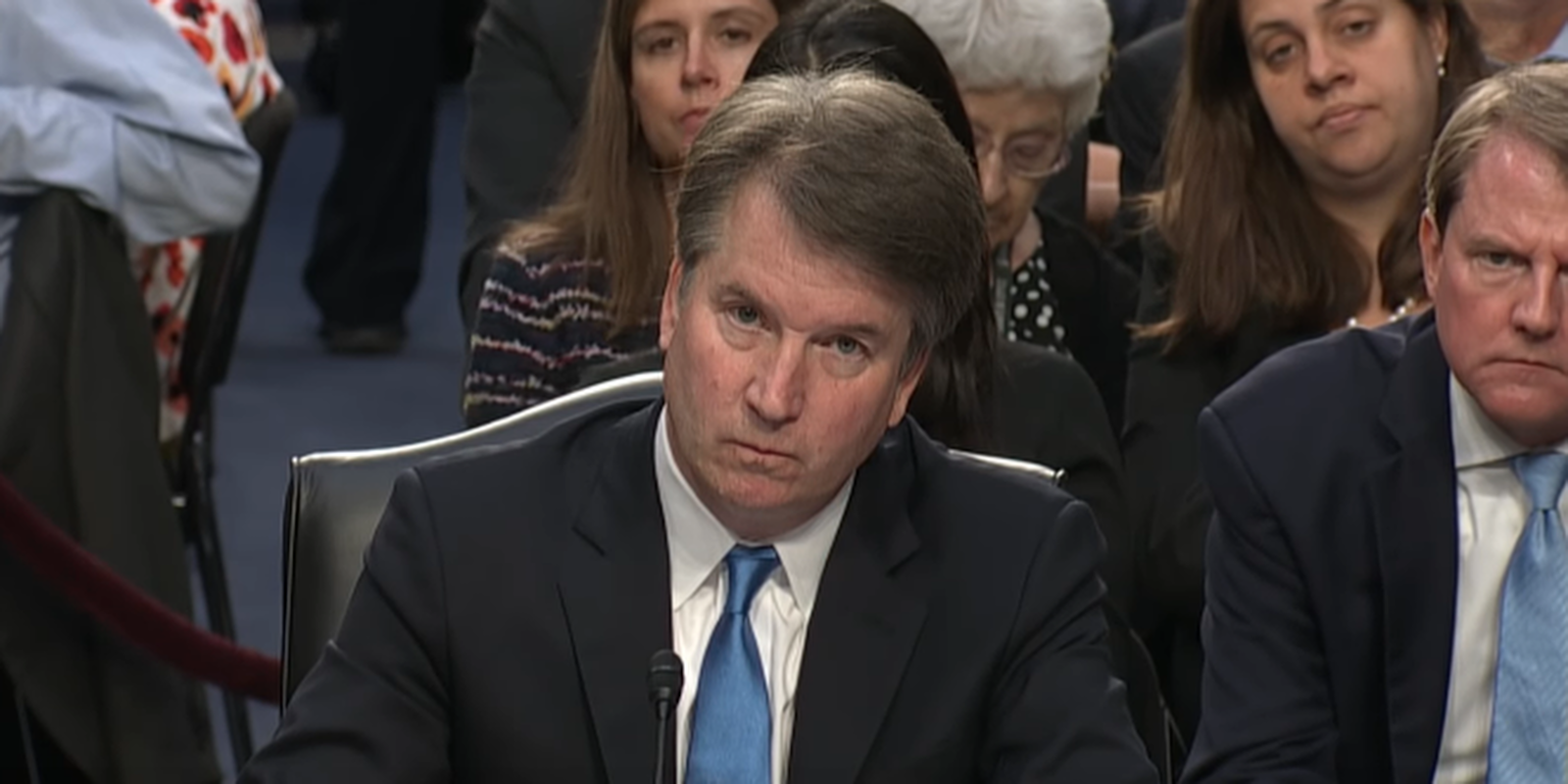The Senate has voted to confirm Judge Brett M. Kavanaugh as the newest Supreme Court justice. The vote came one day after a dramatic cloture vote, in which the Senate decided 51-49 to move forward with Kavanaugh’s confirmation vote.
On Twitter, President Donald Trump announced he would swear Kavanaugh in tonight.
I applaud and congratulate the U.S. Senate for confirming our GREAT NOMINEE, Judge Brett Kavanaugh, to the United States Supreme Court. Later today, I will sign his Commission of Appointment, and he will be officially sworn in. Very exciting!
— Donald J. Trump (@realDonaldTrump) October 6, 2018
The final tally was 50-48. Sen. Lisa Murkowski (R-Alaska) made it clear that she was voting “no” on Kavanaugh’s appointment yesterday, but said she would vote “present” in the final tally so that Sen. Steve Daines (R-Mont.), who supported Kavanaugh, wouldn’t have to miss his daughter’s wedding for the vote.
This did not affect the outcome of the vote.
In the run-up to the tense vote, Sens. Murkowski, Joe Manchin (D-W.Va.), Jeff Flake (R-Ariz.), and Susan Collins (R-Maine) were widely seen as potential hurdles to Kavanaugh’s appointment to the bench.
But their hesitations weren’t enough, and now Kavanaugh will become the 114th justice in America. He is widely expected to take the court rightward.
From the outset, Kavanaugh’s nomination was always expected to be fraught, but controversy exploded after his confirmation hearings, when Dr. Christine Blasey Ford’s allegations of sexual assault against Kavanaugh became public.
Trump announced Kavanaugh as his choice in July after Justice Anthony Kennedy’s retirement, one of about 25 potential nominees on a list generated by the Federalist Society
While Kavanaugh wasn’t the most conservative judge on the short list, progressives voiced concern about his record, particularly his opinions on abortion rights.
The Democrats on the Senate Judiciary Committee also worried about a number of records from Kavanaugh’s time in the Bush White House, which were not released to them before his confirmation hearings in September.
None of these reservations were enough to derail Kavanaugh’s nomination, even after Democratic Senators Cory Booker (D-N.J.) and Mazie Hirono (D-Hawaii) broke Senate rules in dramatic fashion, and made some confidential documents related to Kavanaugh’s records public.
However, it was a confidential letter given to Sen. Dianne Feinstein (D-Calif.) detailing a sexual assault allegedly perpetrated by a teenaged Kavanaugh that most seemed to threaten his path to the highest court in the U.S.
Dr. Christine Blasey Ford, a California psychology professor, detailed the sexual assault that she said Kavanaugh perpetrated in a story in the Washington Post after Kavanaugh’s initial hearings.
Blasey Ford said that when she was 15, a 17-year-old Kavanaugh and friend Mark Judge drunkenly cornered her in a bedroom at a high school party.
Kavanaugh allegedly got on top of Blasey Ford, groped her, tried to take her clothes off, and covered her mouth so she couldn’t scream for help, while Judge looked on and laughed. Until September, Blasey Ford decided not to go public with the allegations, although she had been talking to the Post since July and brought up the alleged incident with her therapist in 2012.
Following Blasey Ford’s accusations, allegations that Kavanaugh exposed himself to Deborah Ramirez at a party at Yale surfaced, as did claims by Julie Swetnick that both Kavanaugh and Judge were involved in drunken gang rapes at high school parties.
Both Blasey Ford and Kavanuagh testified before the Senate Judiciary Committee, which prompted the White House to reopen the FBI’s investigation of Kavanaugh, delaying the cloture vote for one week and raising questions about Kavanaugh’s ability to remain nonpartisan on the bench, especially after he delivered a fiery testimony blaming the Clintons for a political smear and hit job against him.
While protesters pushed Sen. Flake to request a deeper look into the allegations against Kavanaugh last week, he ultimately voted to move Kavanaugh’s nomination forward on Friday and said he would vote to confirm Kavanaugh pending any dramatic 11th-hour revelations.
Sen. Lisa Murkowski, on the other hand, announced she would not vote to advance Kavanaugh’s nomination, putting the pressure on Sens. Collins and Manchin to decide Kavanaugh’s fate.
On Friday, in a 45-minute speech on the Senate floor, Collins announced she would vote in favor of Kavanaugh, assuring today’s vote would put the judge on the Supreme Court. Manchin announced immediately after he would support Kavanaugh.
This article has been updated.


